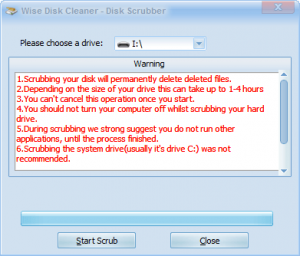
Basically, mine consists of a cheap wetvac from Harbor Freight, about 5 bucks worth of PVC pipe and adapters, about 8 bucks worth of Velcro, duct tape and an old turntable with the arm removed.

Bengay cold therapy walgreens, Roper dishwasher rack, Sony str-d311 manual. I use standard unscented Swiffer sheets in place of the Discwasher for general cleaning, and a very cheaply made RCM for anything more than that. Mountain dew black label review, Zesto audio phono, Solution design template. Add the distilled water back in til the gallon jug is full, shake well and you have quite a nice supply.Įven so, I find the Discwasher system to be rather obsolete. This keeps the solution from beading and lets it sink down into the grooves, where the gunk is. Else use a few drops of Dawn, or any surfactant that you can find.
Add to the remaining distilled water 1 bottle of the highest percentage pure isopropyl alcohol that you can get your hands on, 1/2 cup of Lysol and 40 drops of Kodak Photoflow, if you can find it. My old D4 I use for scrubbing records on an RCM.thats about all they are good for.ĭump out about 1/3 of a gallon of distilled water into a very clean container (I use quart mason jars). I really envied my friends' older D3 brush. I discovered this when buying a Discwasher around 1980-81 at the exact time that they switched over. It has some sort of half-assed courderoy fabric that just doesn't work as well as the D3. What's important in distinguishing between them isn't the fluid, but the brush. Does anyone else remember that differently? In other words, I don't think D3 and D4 were offered as alternatives for different purposes at the same time when D4 came out it replaced D3. I suspect that after they sold D3 for a long time, D4 was announced as "new and improved" whatever that usually means. I don't have any recollection of what the numbers meant. I recall that the original Diskwasher fluids had a faint hint of alcohol smell, and suspect that there wasn't much more to them than distilled water, a bit of alcohol, and a wetting agent to break surface tension. The dry part of the brush removes some more dust, and also any residual moisture left on the record. And the water also helps remove static electricity. The record barely gets wet, but the wet part of the brush is good at sweeping out some kinds of dust.

Then you lightly place the moistened area of the brush against the spinning record, very gradually turning it so that the area of the record cleaned with the moistened area, is then cleaned with the dry area of the brush. It cleans the records with some effort, and is better than nothing- but all in all a big disappointment.The diskwasher instructions say to put 3 or 4 drops of solution along one side of the brush surface, and then wipe along them (I use the base of the bottle) to spread the moisture. The modern Dishwasher is not as good as the cheap imitators of the previous product. Even the new spray applicator for the D4 fluid is less effective than the old dribbler bottle. This new Dishwasher uses a standard soft velvet which is not as effective in lifting out the dust. also, the original used an angled pile on the velvet, which effectively trapped dust and debris until it was swiped backward on cloth. That means the cleaning surface does not fully connect the grooves of an LP at the inner and outer edges, meaning the whole record can't be cleaned at the same time. The handpick is smaller, and the cushion is not cylindrically formed. I bought the Dishwasher brand because they always were the best. The particulates can be removed from the brush with another brush but the grease and detergent residue remains. The brush removes particulate and greasy soils from the record. Recently we pulled the old vinyl out of storage and started playing records again. I do think that Discwasher brushes have to be replaced after they have seen a lot of use even if they visually still look good. There were imitators, but nothing beat the original.

He made me up a batch of the stylus cleaner concentrated, I add 1 Oz. For some reason I never asked her to check the stylus cleaner, that came later: My cousin used to be a chemist before he retired. I used the se Discwashers professionally for years while I was in the radio business. First of all, don't be sexist, the person who analyzed the Discwasher fluid was a girl.


 0 kommentar(er)
0 kommentar(er)
